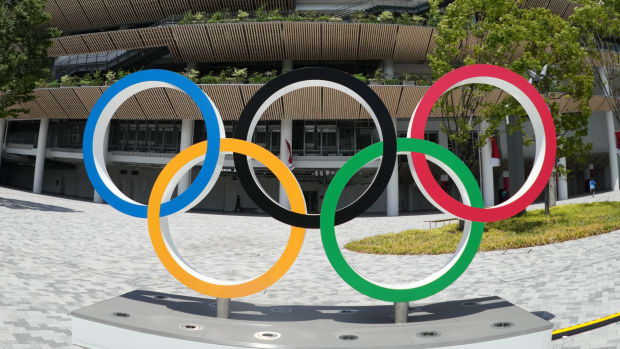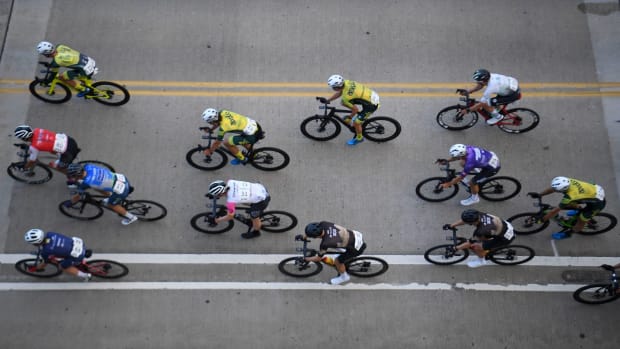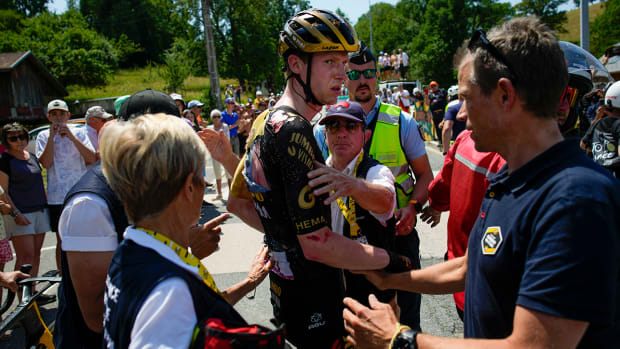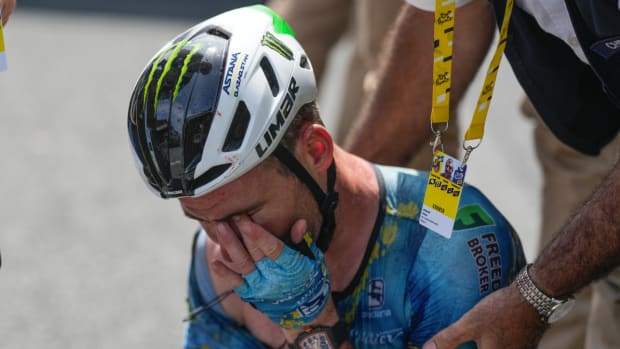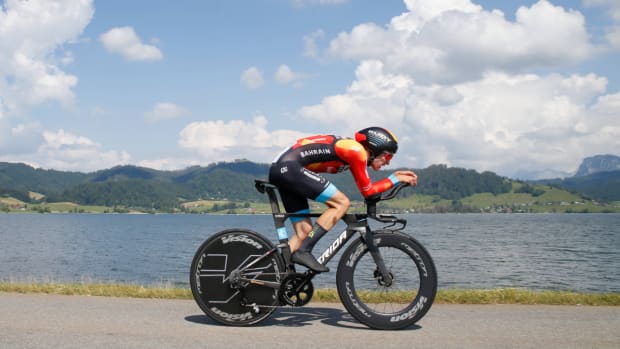Column: Time to rethink but not reduce Lance Armstrong's ban
PARIS (AP) A short-haired man, his accomplices and hangers-on walk into a jewelry store and help themselves, stuffing their pockets with swag. The store's security guard not only turns a blind eye, he pulls down the shutters to hide the pilfering from public view. He even asks for a watch.
Then a policeman walks in.
''It was him!'' everyone shouts, pointing at the short-haired man.
He gets life in jail.
Most of the others get little or nothing.
Add two wheels and Lycra to that story and you start to understand why Lance Armstrong feels he has suffered rough justice. And understandably so. Because it is clearer than ever now that the cyclist wasn't alone in pulling off one of the biggest heists in sporting history, the theft of seven Tour de France victories.
The headline from a year-long probe into how Armstrong and other cycling dopers got away for so long with day-light robbery is that this was partly an inside job. It found that supposed guardians of the sport at the International Cycling Union or UCI, the very people meant to be watching the store and catching thieves like Armstrong who cheated to win, instead helped shield him and cover for his deceit.
They did so, seemingly, not for personal financial gain but because Armstrong was box office, cycling's ticket to prime time. Like fans, sponsors and many journalists, UCI administrators were all too willing to buy into the fable of a cancer survivor riding from death's door to Tour glory. Armstrong then used that compelling narrative and his lawyers to steam-roller over doubters and potential whistle-blowers.
The scathing 227-page report from the Cycling Independent Reform Commission should be compulsory reading for administrators in all sports, not just cycling. It shows the dangers of administrators who get too buddy-buddy with sports stars, who treat them as VIPs instead of keeping them at a respectable distance and holding all athletes to the same rules and standards.
Being a relatively small sport, where ''everyone, or nearly everyone, knows everyone else,'' also made cycling vulnerable, the CIRC found. UCI presidents, first Hein Verbruggen and then Pat McQuaid, could govern ''almost unchallenged,'' it said.
''This style of management was (and sometimes still is) not uncommon in sports governing bodies,'' the CIRC notes, another reason why its report should serve as a lesson outside of just cycling.
The UCI could have tackled the rot way back in 1999, when Armstrong tested positive for a corticosteroid during his first Tour victory, but it instead let him off the hook when his doctor produced a bogus prescription. That, in hindsight, was a crucial and fateful missed opportunity to stop the Armstrong myth from ballooning into one of sports' biggest lies.
''The UCI failed to apply its own rules,'' the CIRC notes.
In one of its most startling revelations, the CIRC also detailed how the UCI and one of Armstrong's lawyers together doctored findings from what was meant to be an independent investigation of newspaper allegations in 2005 that traces of the banned drug EPO were found in Armstrong's urine.
Administrators were so cozy with Armstrong they even asked for personal favors, including ''for Nike watches for the family members of a former UCI president,'' according to the CIRC, which interviewed 174 witnesses, including the rider now stripped of his seven Tour titles and banned for life.
The UCI should be commended for allowing the investigators to uncover these and other uncomfortable stains, and for publicly airing them Monday. The belated but necessary recognition of the UCI's role in propagating the Armstrong lie and in allowing doping to flourish should now help what will inevitably be a long process of restoring cycling's credibility, under the UCI's new president, Brian Cookson. Other sports should follow cycling's lead and also allow more light to shine on their failings and dark inner recesses. Tennis, athletics and soccer spring to mind.
And what of Armstrong himself? Time to reduce his lifetime ban?
The answer should still be no. The scale of Armstrong's lying and cheating was too big to allow him a second chance; he and his lawyers also bullied too many people, including ex-teammates and others, to shut them up.
But it is also clearer than ever now, thanks to the CIRC report, that blame and punishment for the endemic doping in cycling should have been shared more broadly and evenly. More people should have been called to account and punishments for others should have been heavier
The vast majority of riders were doping, looting the store. But Armstrong was the only rider banned for life in 2012 by the U.S. Anti-Doping Agency. Former teammates who testified against him were banned for just six months.
That isn't justice and now looks more like a crucifixion.
---(equals)
John Leicester is an international sports columnist for The Associated Press. Write to him at jleicester(at)ap.org or follow him at http://twitter.com/johnleicester
